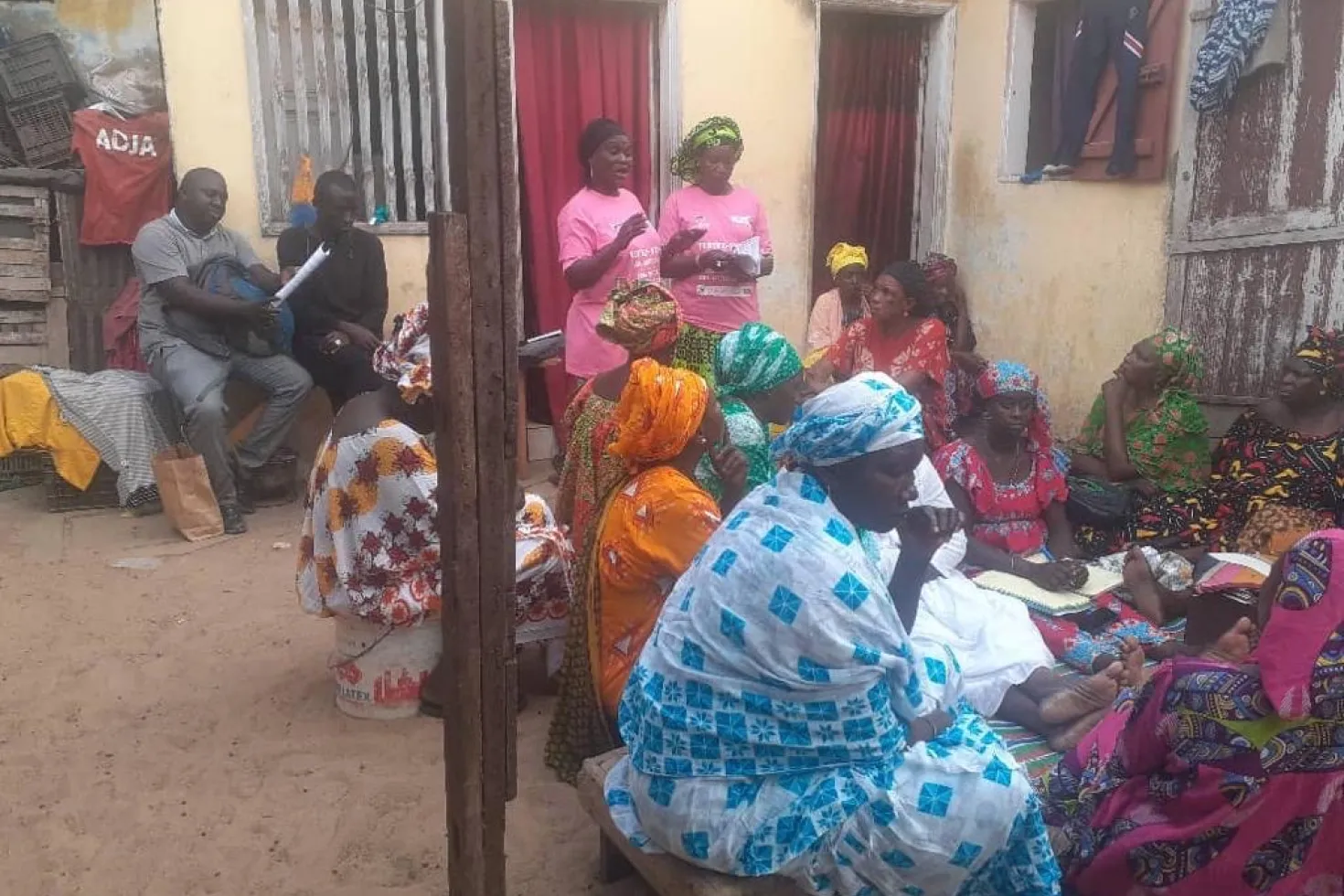Promoting integrated approaches for cervical cancer in Senegal

Introduction
As a civil society organisation, community mobilisation is integral to the work of the LISCA, and women’s cancers has been a key priority of the LISCA for many years. The LISCA has employed an integrated approach, encompassing primary and secondary prevention as well as access to treatment, and focused upon the training of healthcare professionals, ensuring reliable information is shared and increasing population adherence.
Background
The HPV vaccine has been available free of charge in Senegal since 2018, routinely administered to nine year old girls in health centres, schools, and other community structures. However, coverage has remained limited due to vaccine hesitancy amplified by the media and misinformation on social media, particularly during and after the Covid-19 pandemic. Additionally, healthcare professionals, who play an essential role in informing the population, were either uninformed or exhibited reluctance, especially at the local level, generating misleading information within communities.
Actions
Since 2010, LISCA has been delivered training for midwives and other healthcare professionals for cervical cancer screening. Beginning in 2019, and the availability of the HPV vaccine in districts, the LISCA have integrated primary prevention into the training of healthcare professionals in the fight against women’s cancers. These training sessions take place in health districts and incorporate all three pillars of cervical cancer elimination. The training, provided by a team of experts including vaccinologists, gynaecologists, and oncologists, either online or in-person, places significant emphasis on the HPV vaccine along with HPV DNA testing and access to treatment (which is free in Senegal). In its training to health professionals, in order to strengthen its messaging, the LISCA uses strong role models such as Australia, where vaccine coverage has had a significant impact on cervical cancer mortality. The training is aimed at gynaecologists, nurses, and midwives. . Additionally, a specific campaign, through conferences, targeted pharmacists with information on cervical cancer, including a section on vaccination, along with holistic information about women’s cancers. This information is crucial for pharmacists to provide clear and accurate information to individuals seeking to purchase the vaccine. Pharmacists can also direct them to health centres for free access when appropriate.
Results
The engagement of healthcare professionals, especially midwives who serve as the primary point of entry for women in health centres, has led to broader vaccine coverage. Similarly, pharmacists have become engaged and changed perceptions, especially in urban areas. In Dakar, where there were many false beliefs about vaccination, coverage has substantially increased.
Conclusion
Civil society organisations (CSOs) have a unique position in adopting women centred approaches, therefore naturally integrating awareness campaigns and key messages adapted to priority needs of the community. In a research project on AVE (Automated Visual Evaluation) for secondary prevention of cervical cancer, the LISCA insisted on the integration of its awareness activities on secondary prevention with awareness raising on vaccination. . By combining professional information, community engagement, and prioritisation, LISCA was able to adopt an approach that was not only integrated but also centred on the needs of the communities, therefore increasing confidence and ultimately the coverage of the HPV vaccine nationally.
Last update
Wednesday 15 November 2023